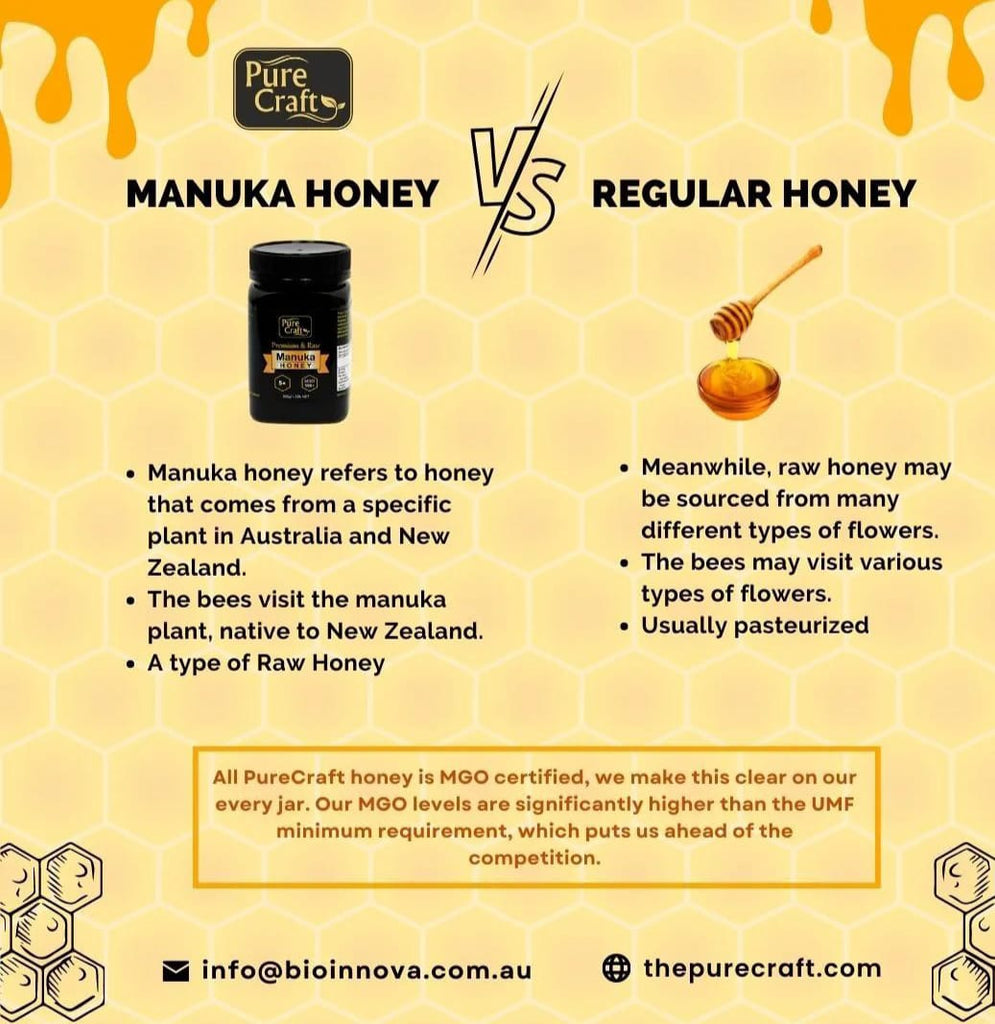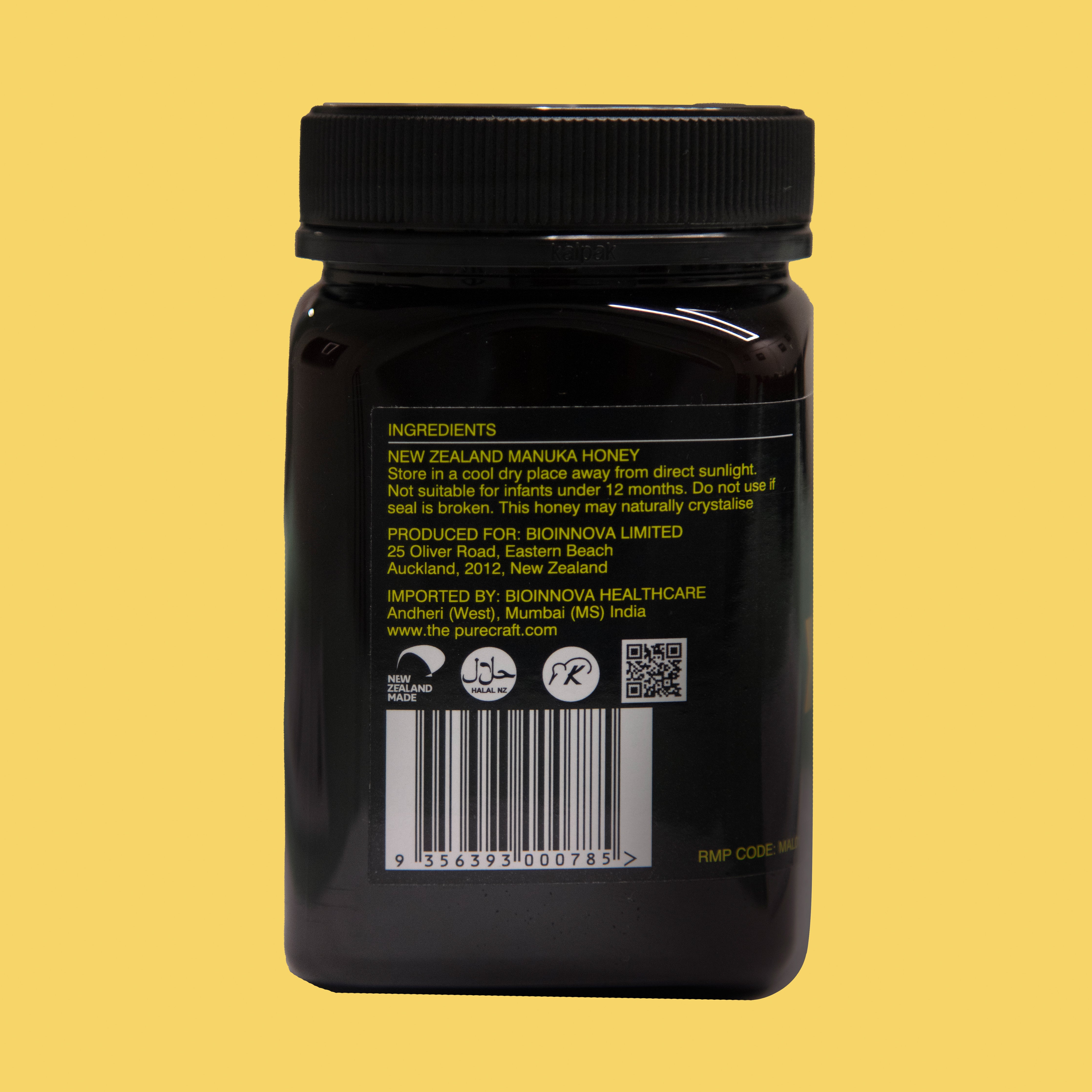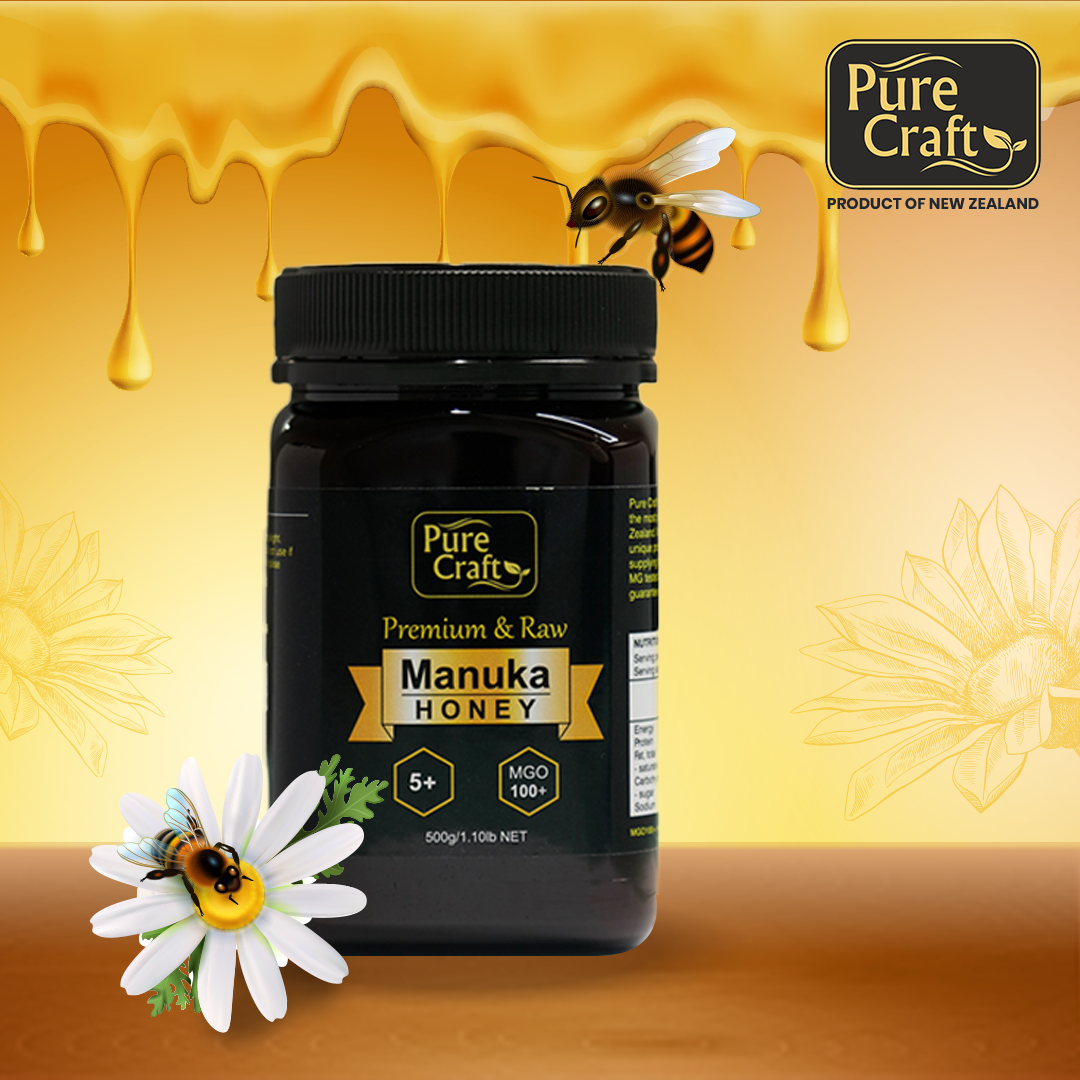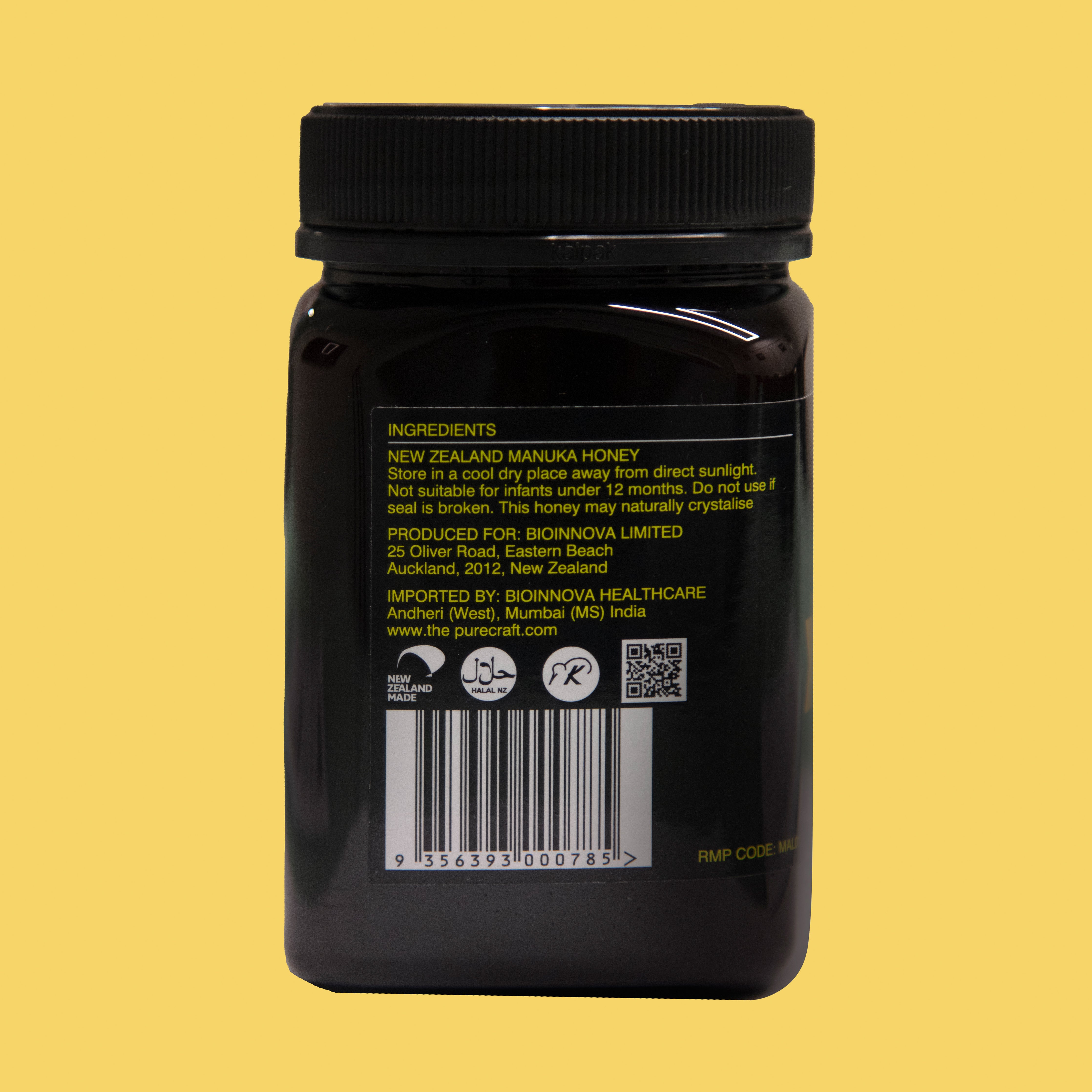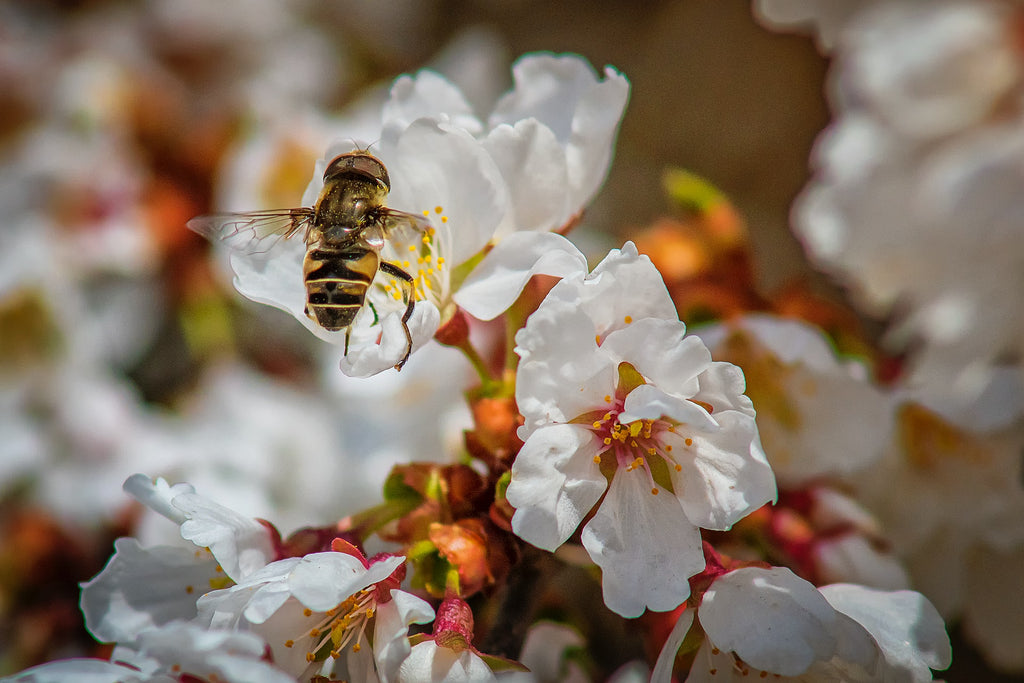
Beginner’s Guide to Manuka Honey

Manuka honey is natural honey made by bees collecting nectar from the Manuka bush, a wild shrub growing widely across New Zealand. The honey has antioxidant and antibacterial properties that have been associated with a wide array of health benefits.
History of Manuka as a Medicinal Plant
Did you know that parts of the Manuka bush were utilized for many centuries by New Zealand’s native Māori as herbal medicine to treat dandruff and fevers?
Honey has been widely used since ancient times to heal wounds, but it wasn’t until European settlers introduced the European honeybee in the first half of the nineteenth century. It was the period that both Māori and settlers started using honey to help with stomach and skin problems.
For many years, the thick, somewhat bitter honey wasn’t prized, and it was even utilized as animal feed before its distinct healing properties were distinguished in the 1980s. Over the past decades, scientists have been working out to understand what makes Manuka honey different and unique.
What Science Says about Honey
All honey has antibiotic properties in them in which scientists think are due to its slightly acidic nature. It also has naturally-occurring chemical hydrogen peroxide.
Nonetheless, Manuka honey is different, as its antimicrobial properties come from non-peroxide activity. A study shows that this activity which is unique to Manuka honey, has substantial antibacterial effects.
What Makes Manuka Honey So Special?
Scientists found that the antibiotic properties of Manuka honey are caused by a natural compound known as methylglyoxal (MGO) that develops within the honey. Honey can have more potent antibiotic properties the higher its MGO content.
MGO is an antibacterial agent, and study proves it’s hard for bacteria to build immunity to it as it has different action methods. The faintly bitter flavor of Manuka honey is somewhat high in phenolic acids, which are antioxidants.
What are the Benefits of Manuka Honey?
According to research, taking Manuka honey could positively affect gut health and oral health and help support the immune system. It has also been shown that Manuka honey can kill bacteria that cause infections in humans, such as staphylococcus and E. coli and antibiotic-resistant bugs like MRSA.
Further, clinical trials on humans discovered that a daily dose of Manuka honey was only as effective as a chemical mouthwash at minimizing dental plaque and stopping gingivitis. Lab-based trials have proven that Manuka efficiently prevented the Campylobacter bacteria causing severe diarrhea and stomach bugs Salmonella and Enterobacter. More lab tests have demonstrated that Manuka honey kills shingles virus Varicella zoster and chickenpox.
Still, many scientists agree that more clinical tests in humans are required to verify the health benefits of Manuka honey. However, many positive signs of its unique properties can help strengthen a person’s wellbeing.
What’s Unique about Our New Zealand Manuka Honey?
All our Manuka honey is exported from New Zealand and meets the strict requirements of the New Zealand Government to guarantee it’s genuine. We invite you to take a look at our Manuka honey offers. Shop now!

